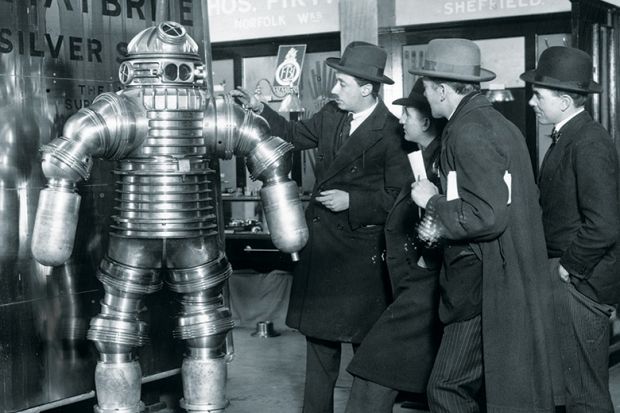With their formidable brain power and complex skill sets, academics would seem to have little to fear from the advance of machines now capable of doing certain human jobs.
But they may not be as immune to the march of artificial intelligence as they imagine, in light of an experiment that indicates that computers are better at some types of academic research than flesh-and-blood scholars.
As part of research by academics in Scotland, 48 real-life researchers were pitted against 48 “simulated research agents” and challenged to review a body of literature for its relevancy to an assigned task.
Even when the computers were deliberately slowed down – both humans and robots were given 20 seconds to decide if a document was relevant – digital researchers did better on the literature review than humans, according to the study.
While real-life researchers remain vastly superior to their computer counterparts for almost all higher cognitive tasks, the new technology could prove very useful to academia, experts said.
Expanding the use of these types of “digital assistants” could free up many more real-life researchers from the tedious and repetitive “grunt work” of literature reviews, explained Leif Azzopardi, senior lecturer at the University of Strathclyde’s department of computer and information sciences and one of the authors of the study.
“When medical researchers undertake a literature review, they are sometimes looking at tens of thousands of articles to assess whether or not they are relevant,” said Dr Azzopardi.
“Paid around £70 an hour, researchers will typically spend 500-600 hours just assessing documents to see whether they are relevant or not,” he added, saying the estimated cost to medical science alone is about £150 million a year.
Those researchers should instead focus their time and energy on research that can only be done by highly trained analysts or medical staff, said Dr Azzopardi, whose research was presented last month at the international Conference on Information and Knowledge Management in Indianapolis.
“If you use digital assistants to filter the literature, you can then use real researchers to contextualise it and present it in a way that can inform policy,” he said.
“Researchers would be doing research, rather than academic grunt work,” Dr Azzopardi added.
Asked whether artificial intelligence could take over altogether from human researchers, Dr Azzopardi said it was “only a matter of time”.
Referring to what is known as “technological singularity” – the point at which robots transcend human intelligence – Dr Azzopardi said that “there will be a time where artificial intelligence is fully autonomous and able to build better versions of itself without us”.
“At that point in time we are all out of a job,” he said.
However, the advent of computers capable of “deep learning” may still be 30 to 40 years away, Dr Azzopardi added.
“The first step over the next 20 years is how we improve the processing of information and maybe, in 30 years’ time, machines may understand a lot more than we do,” he said.
Register to continue
Why register?
- Registration is free and only takes a moment
- Once registered, you can read 3 articles a month
- Sign up for our newsletter
Subscribe
Or subscribe for unlimited access to:
- Unlimited access to news, views, insights & reviews
- Digital editions
- Digital access to THE’s university and college rankings analysis
Already registered or a current subscriber? Login












